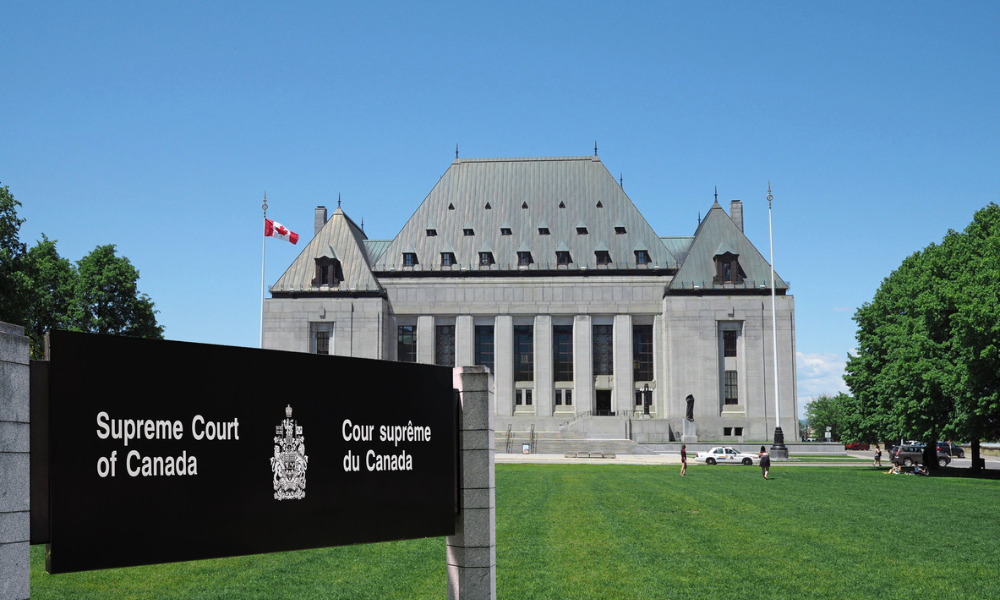
Federal case hearings set this week tackle transportation, criminal law, ethics, labour matters

This week, hearings scheduled before the Supreme Court of Canada, Federal Court of Appeal, and Federal Court involved issues relating to air passenger protection, motor vehicle offences, exploitation, government grants, workplace violence, employment insurance, tax, and damages.
The court set International Air Transport Association, et al. v. Canadian Transportation Agency, et al., 40614 on Mar. 25, Monday. This case concerned the validity of the Air Passenger Protection Regulations, SOR/2019-150 to compensate air passengers for various delays, losses, and inconveniences experienced during international air travel.
The appellant challenged provisions allegedly exceeding the respondent’s authority under the Canada Transportation Act, 1996 and contravening Canada’s international obligations. The Federal Court of Appeal dismissed the appeal except relating to a provision on liability for temporary loss of baggage, which it found ultra vires.
The court scheduled Braydon Wolfe v. His Majesty the King, 40558 on Mar. 26, Tuesday. The appellant was convicted on two counts of criminally negligent operation of a motor vehicle causing death under s. 220(b) and on one count of criminally negligent operation of a motor vehicle causing bodily harm under s. 221 of the Criminal Code, 1985.
The issue was whether the judge could impose a driving prohibition on somebody convicted for criminal negligence causing death or bodily harm through the operation of a conveyance. The Saskatchewan Court of Appeal dismissed the sentence appeal.
The court set His Majesty the King v. T.J.F., 40749 on Mar. 27, Wednesday. The respondent was charged with human trafficking and obtaining a financial or material benefit from human trafficking. The trial judge did not accept the complainant’s testimony, which included evidence of exploitation and attempted exploitation, due to credibility issues.
The Nova Scotia Court of Appeal dismissed the appeal. The majority agreed that the trial judge erred in treating the respondent’s violent conduct as “past discreditable conduct” but found that the error did not impact the acquittal since exploitation and attempted exploitation depended on the testimony.
The court scheduled Democracy Watch v. Attorney General of Canada, A-169-21 on Mar. 25, Monday. This judicial review application, which concerned a government grant to a charity, questioned the conflict of interest and ethics commissioner’s decision, which allegedly erred in law and fact and failed to observe a principle of natural justice.
The court set Susan Holita v. Attorney General of Canada, T-2712-22 on Mar. 25, Monday. This arose from the applicant’s allegations of workplace violence and harassment under the Canada Labour Code, 1985 and under the Work Place Harassment and Violence Prevention Regulations, SOR/2020-130.
The court scheduled George Kouridakis v. Canadian Imperial Bank of Commerce, T-275-23 on Mar. 26, Tuesday. This judicial review application sought to set aside the adjudicator’s decision for the respondent to pay the applicant $43,200 to satisfy all claims arising from his termination.
The court set Canadian Imperial Bank of Commerce v. George Kouridakis, T-289-23 on Mar. 26, Tuesday. This judicial review application wanted to quash the arbitrator’s decision that the respondent’s dismissal was without just cause but was nonetheless necessary.
The court scheduled Onex Corporation et al. v. AGC, T-85-22 on Mar. 27, Wednesday. This judicial review application challenged the Canada Revenue Agency’s conclusion that the minister of national revenue lacked discretion to accept the applicant’s election under s. 21(15) of the Economic Action Plan 2014 Act, No. 2 for the purposes of deeming that ss. 93.1(5) and (6) of the Income Tax Act, 1985 came into force on Jan. 1, 2010 and thus applied to the 2012 and 2013 taxation years of its foreign affiliates.
The court set Onex Corporation et al. v. AGC, T-2082-22 on Mar. 27, Wednesday. This judicial review application questioned the Canada Revenue Agency’s conclusion that, even if s. 220(3) of the Income Tax Act applied to the election, the minister of national revenue would not have exercised discretion to extend the time for filing that election.
The court scheduled Zoran Boskovic v. Attorney General of Canada, T-888-23 on Mar. 28, Thursday. This judicial review application sought to quash the decisions of the Social Security Tribunal of Canada’s appeal division denying leave to appeal the general division’s decisions refusing to overturn the denial of an employment insurance application.
The court set Catherine M. Robinson v. Attorney General of Canada et al, T-228-20 on Mar. 28, Thursday. The applicant asked for a waiver of tax payable due to an allegedly reasonable error on one tax-free savings account transfer transaction.
The court scheduled Kristin Ernest Hutton v. Ria Sayat et al, T-268-17 on Mar. 28, Thursday. The plaintiff requested damages for unlawful interception, modification, recording, and destruction of personal transmissions and digital property under s. 17 of the Crown Liability and Proceedings Act, 1985, among other damages.